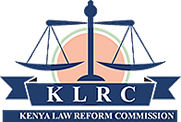(1) A judge of a superior court may be removed from office only on the grounds of--
(a) inability to perform the functions of office arising from mental or physical incapacity;
(b) a breach of a code of conduct prescribed for judges of the superior courts by an Act of Parliament;
(c) bankruptcy;
(d) incompetence; or
(e) gross misconduct or misbehaviour.
(2) The removal of a judge may be initiated only by the Judicial Service Commission acting on its own motion, or on the petition of any person to the Judicial Service Commission.
(3) A petition by a person to the Judicial Service Commission under clause (2) shall be in writing, setting out the alleged facts constituting the grounds for the judges removal.
(4) The Judicial Service Commission shall consider the petition and, if it is satisfied that the petition discloses a ground for removal under clause (1), send the petition to the President.
(5) The President shall, within fourteen days after receiving the petition, suspend the judge from office and, acting in accordance with the recommendation of the Judicial Service Commission--
(a) in the case of the Chief Justice, appoint a tribunal consisting of--
(i) the Speaker of the National Assembly, as chairperson;
(ii) three superior court judges from common-law jurisdictions;
(iii) one advocate of fifteen years standing; and
(iv) two other persons with experience in public affairs; or
(b) in the case of a judge other than the Chief Justice, appoint a tribunal consisting of--
(i) a chairperson and three other members from among persons who hold or have held office as a judge of a superior court, or who are qualified to be appointed as such but who, in either case, have not been members of the Judicial Service Commission at any time within the immediately preceding three years;
(ii) one advocate of fifteen years standing; and
(iii) two other persons with experience in public affairs.
(6) Despite Article 160 (4), the remuneration and benefits payable to a judge who is suspended from office under clause (5) shall be adjusted to one half until such time as the judge is removed from, or reinstated in, office.
(7) A tribunal appointed under clause (5) shall--
(a) be responsible for the regulation of its proceedings, subject to any legislation contemplated in clause (10);
and
(b) inquire into the matter expeditiously and report on the facts and make binding recommendations to the President.
(8) A judge who is aggrieved by a decision of the tribunal under this Article may appeal against the decision to the Supreme Court, within ten days after the tribunal makes its recommendations.
(9) The President shall act in accordance with the recommendations made by the tribunal on the later of --
(a) the expiry of the time allowed for an appeal under clause (8), if no such appeal is taken; or
(b) the completion of all rights of appeal in any proceedings allowed for under clause (8), if such an appeal is taken and the final order in the matter affirms the tribunal’s recommendations.
(10) Parliament shall enact legislation providing for the procedure of a tribunal appointed under this Article.
